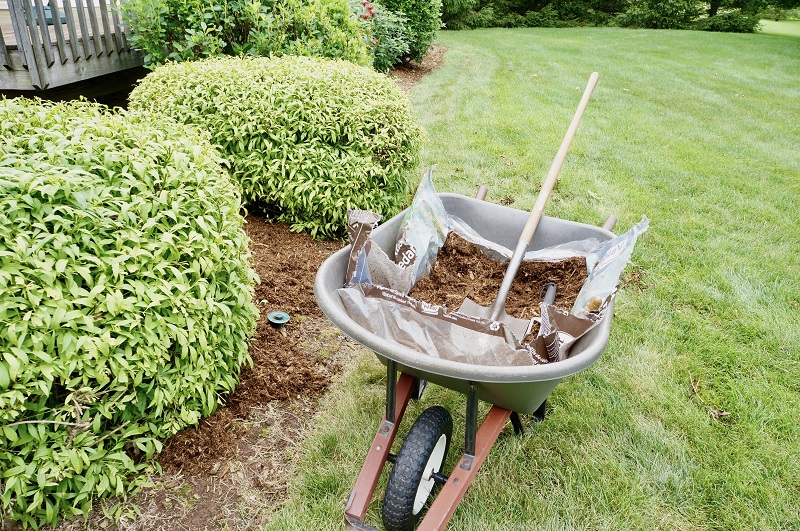
If you're looking for a natural way to improve the quality of your soil and prevent weeds, mulching might be the answer. Mulching your garden at the right time of year can be very beneficial, so today, we're going to walk you through the mulching process step by step so you can see exactly how it works!
What is mulching?
Mulching is the process of adding material to the top of your lawn or garden to achieve a number of different goals. Mulching has multiple benefits - especially if you opt for a biodegradable, organic mulch material such as wood chippings or grass cuttings.
What are the benefits of mulching?
Why go to the trouble of mulching your garden? Well, mulching can improve the quality of your lawn, flower beds and borders. It can also prevent problems from arising, making your garden easier to maintain in the future.
Here are some of the benefits of mulching:
- Provides nutrients for the soil, including nitrogen
- Increases the microbial diversity and improves health
- Minimises the growth of weeds
- Helps the soil retain moisture
- Deters pests
- Saves you time and money
Will mulching my lawn create a build-up of thatch?
As long as you regularly scarify your lawn and mulch correctly, adding mulch to your lawn shouldn't cause a thatch problem. Grass cuttings decompose quickly and completely, leaving minimal organic matter on the surface of your lawn. The decomposition process is much more efficient if the mulch comes into contact with the soil - that's where all the microbes are!
If your lawn is already suffering from a thatch problem, this could make it hard for the mulch to decompose; after all, it's an additional layer of material between the mulch and the soil. If you're planning to mulch your soil, we'd recommend scarifying your lawn first. This will remove any unnecessary thatch and will ensure your mulch can do its job properly.
Lawn Scarification >
When should I mulch?
The two best times of year to apply mulch are...
- Spring, before weeds have had a chance to grow through
- Autumn, when plants are starting to die back
That being said, mulch can be applied to your lawn any time you feel it needs a bit of TLC. Mulching your garden regularly will help plants to stay healthy and keep weeds at bay.
Bagging vs mulching
In the grand scheme of things, mulching your lawn is better for it than bagging the clippings. Why? As we've explained, mulching has so many benefits that it seems a shame to bag up your grass clippings and throw them away. Bagging your lawn clippings and disposing of them is sure to take longer, and might cost you more money in the long run when you have to pay for fertilisers, weed killers, etc.
The only time we'd recommend bagging your lawn clippings is if your lawn has a serious thatch problem, or if you're concerned with the overall appearance of your lawn. It's true that mulching can be unsightly - after all, you're cutting your grass just to cover it back over with the clippings. But the results are often well worth it!
Mulching should be part of a healthy lawn care routine. Over time, you will see great improvements in the quality of your lawn and plants.
That being said, mulch isn't a magic cure for all lawn and garden problems. We recommend checking out some of our other services to keep your lawn and garden in the best condition! Contact us for a FREE lawn survey.
Specialist Lawn Treatments Lawn Disease Protection